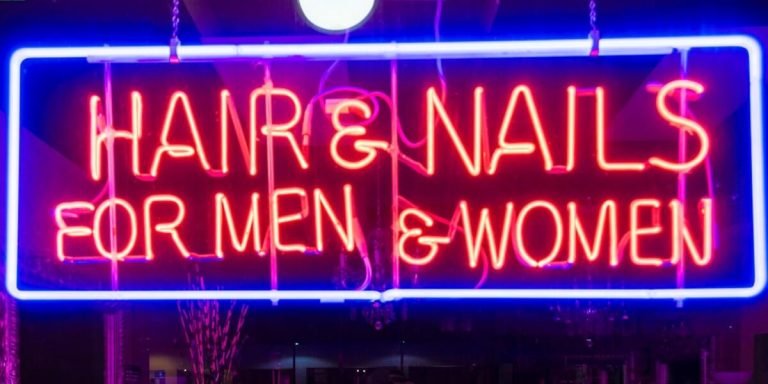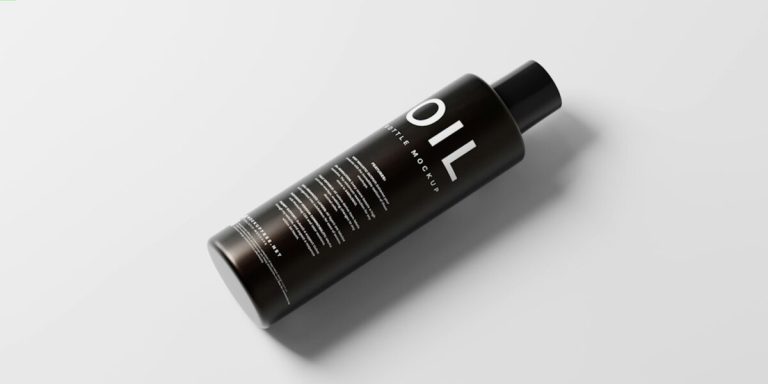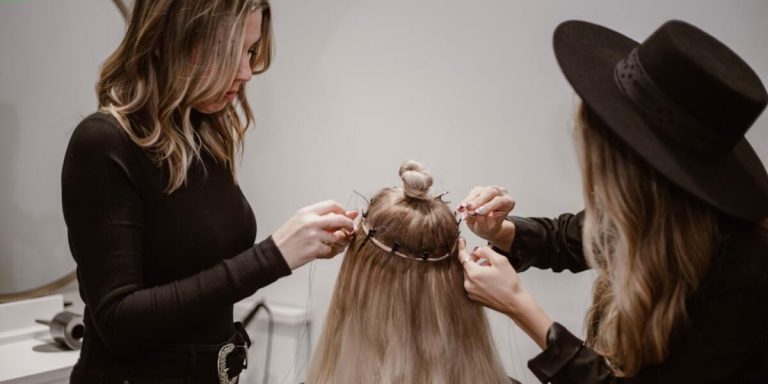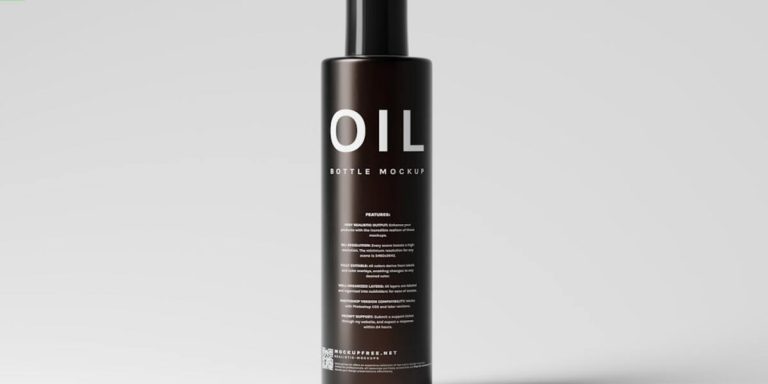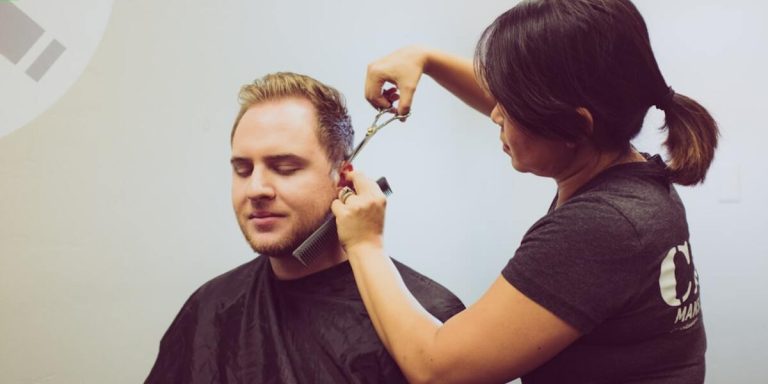Are Hair Dryers Bad for Your Health? Unraveling the Truth With Soulphany
“Are hair dryers bad for your health?” This question has been on the minds of many individuals who frequently rely on this convenient tool to style their tresses. There’s no denying that hair dryers are a staple component in most people’s beauty routine, but there is some debate about whether or not they can impact overall hair health.
Understanding the potential risks associated with regular use of these devices will enable us to make informed decisions and adopt alternatives if necessary. Before you next reach out for your trusty blow dryer, join Soulphany as we delve deeper into this topic and unravel facts backed by comprehensive research.
Did you know?
Contrary to popular belief, hair dryers can actually protect your scalp’s health. Leaving dampness in the scalp for too long may lead to buildup of bacteria and fungi, which can trigger various skin and hair issues like dandruff or fungal infections.
The Impact of Hair Dryers on Scalp and Hair Integrity
Hair dryers have become an indispensable tool in the modern beauty regimen. However, their frequent use can take a toll on scalp and hair integrity, begging us to ask if they could be bad for your health. The heat generated from these devices causes water under the cuticles (the outermost layer of our hair) to expand leading to bubbles or voids in your follicles – phenomena known as bubble hair.
This doesn’t stop at just harming your locks; it goes beyond that impacting one’s overall health indirectly too! With regular application of intense heat, you risk stripping the natural oils from both: scalp and strands, leaving them parched and prone to damage. Dryness induced itchiness urges individuals into scratching which inadvertently opens up doors for bacterial infections.
Over-reliance on hair dryers can lead to Traction Alopecia, a condition caused by the constant pulling force on strands during brushing after blow-drying. The adverse effects of frequent hair dryer use may not directly affect physiological well-being, but the indirect implications are concerning and should prompt us to reconsider our dependency on these appliances.
How Heat Affects the Hair Cuticle and Protein Structure
The heat from hair dryers affects the health of our tresses in more ways than we often realize. Let’s try to understand how it impacts the two essential components of your mane – cuticle and protein structure.
Firstly, considering the hair cuticles or outermost layer, excessive heat can lead to their upliftment. This lifting creates spaces that facilitate loss of moisture which further leads to brittleness and frizzing. When you use a blow dryer on high settings regularly, these spaces become permanent damages causing weak strings prone to breakage.
Secondly, let’s talk about keratin – crucial proteins present inside each strand contributing significantly towards maintaining its strength and elasticity. Frequent exposure to intense warmth causes changes at molecular levels leading ultimately into degradation; thus making them less resilient against physical damage caused by daily styling routines like brushing or tying up ponytails.
What does this mean for those routinely using blow-dryers? They might unknowingly push themselves onto a path resulting in ‘hair trauma’. Their continuous association with heated appliances may pose serious threats regarding potential scalp burns too – especially if not used appropriately while drying damp locks after showers every day.
Therefore when wondering “are hair dryers bad for your health?” one should remember anything excessively done could turn harmful sooner or later; even something as harmless-sounding as blowing hot air through wet strands right out from bathtubs!
Assessing Long-Term Damage From Regular Blow-Drying
Regular use of blow dryers can be a necessary part of many people’s hair care routines. While they provide the convenience of quick drying, there are potential adverse impacts on scalp and hair integrity to consider.
One recurrent question is: “are hair dryers bad for your health?” In truth, it isn’t about being ‘bad’ or ‘good,’ but rather understanding how best to utilize them without causing unnecessary damage in 2023.
Over time, heat styling tools like blow-dryers can strip natural moisture from your scalp and strands leading to driness – this particularly happens when used at high temperatures frequently. This absence of essential oils may result in an itchy scalp and even dandruff over time.
Moreover, excessive heat exposure weakens the core structure (the cortex) inside your individual hairs promoting breakage. You might have witnessed split ends due to regular hard handling with not just blow-drying but also brushing which combinedly weaken those fragile wet strands post-shower session.
So, where does that leave us? Forgoing warmth entirely seems unrealistic given our busy schedules. Additionally, living under cold weather always makes air drying impossible. Here’s what you can do:
1. Firstly avoid using the highest settings. Prolonged heating sessions intensify damages while lower temperature alternatives work slower but safer ensuring less harm upon follicles keeping them healthy longer.
Understanding Electromagnetic Field (EMF) Exposure from Hair Dryers
The common hair dryer is an indispensable tool in our daily grooming routine, but it brings along a silent companion – Electromagnetic Field (EMF) exposure. EMFs are invisible areas of energy associated with the use of electrical power and various forms of natural and man-made lighting. Owing to their technological design, most hair dryers emit these fields to varying extents.
In recent times, there has been growing apprehension around whether or not these emissions can harm your health. Among other concerns such as heat damage or dehydration for the scalp and strands due to excessive usage; this question on potential ill-effects from chronic EMF exposure adds another layer of complexity about handling hair care routines intelligently in 2023.
A myriad scientific studies have tried uncovering possible associations between long-term EMF exposure and adverse health impact like headaches, fatigue or even certain types of cancers—though definitive conclusions remain elusive so far. However, one commonly accepted viewpoint among experts contends that limiting undue radiation exposures—including those originating from everyday appliances like hair dryers—is prudent practice until more definitive research exists.
EMF Levels in Common Hairstyling Tools: What You Need to Know
There’s no denying that most people use hair styling tools, such as hair dryers, without knowing their potential hazards. One of these dangers includes exposure to electromagnetic fields (EMFs), which are areas of energy associated with the use of electrical power and various forms of natural and man-made lighting.
So, when we ask “are hair dryers bad for your health?” The answer is more complex than a simple yes or no. How often you use them and how close they come to your head can significantly influence EMF exposure levels.
Hairdryers aren’t the only culprits though; other common hairstyling tools like straightening irons and curling tongs also emit varying amounts of EMF radiation. Occasionally using these devices won’t be enough to cause harm but frequent usage could potentially lead to a variety risks including headaches, memory issues, sleep disturbances amongst others.
Consider these points about the stress over everyday home appliances’ hazardous effects:
1) Distance Matters: The strength of an electromagnetic field diminishes rapidly with distance — this means holding the dryer farther from our scalp may reduce risk.
2) Limit Usage: Try air drying whenever possible – save heat styling methods for special occasions.
3) Low-EMF Products Available: There’s a growing market catering specifically towards low-EMF electronics including hairstyling products—these might be slightly pricier but demonstrate lower emission rates!
Ways to Minimize EMF Exposure While Styling Your Hair
As increasing evidence points towards the potential hazards of EMF exposure, it’s essential we take practical steps to mitigate this risk during daily hair care routines. While there is no conclusive scientific consensus stating “are hair dryers bad for your health”, measures can and should be taken to minimize unnecessary EMF exposure. Here are some ways you can do that while still achieving beautifully styled locks.
1. Limit Hair Dryer Usage: The simplest way to reduce your electromagnetic field (EMF) exposure from a hair dryer is by minimizing its usage. Letting your hair air-dry naturally as frequently as possible reduces not only on the duration but also frequency of direct EMF contact.
2. Low Heat Settings: Using lower heat settings in styling tools helps us twofold – lessens damage caused by heat stress, promoting healthier strands; and at same time lowers power output thereby reducing overall emitted radiation level.
3.Cord-Free Styling Tools : Opting for cord-free items when purchasing new equipment could significantly cut down upon radiation levels being faced if these products don’t require electricity which produces Electromagnetic fields or radiation.
4.Use an Infrared Hairdryer- These types have been proven much safer since they emit non-ionizing radiations which fall within safe limits stipulated by regulatory bodies globally like Federal Communications Commission etc., thus ensuring peace mind alongside perfect tresses every morning!
Alternatives to Traditional Blow-Drying for Healthier Tresses
In recent years, the discourse around hair health has evolved significantly with a notable emphasis on alternatives to traditional blow-drying techniques. The keyword being ‘health’ prompts us to delve deeper into the realm of alternatives that aim to provide healthier tresses while also paying heed to overall wellbeing. Traditional hair dryers have long been under scrutiny for their potential harm not only on our precious locks but potentially for our overall health.
It’s no secret that excessive heat can cause severe damage to your hair strands leading them towards brittleness and breakage – all symptoms of unhealthy mane. More so, many in 2023 are questioning whether these incidences pose more significant risk – asking “are hair dryers bad for your health?” This is where looking at safer and healthier means become imperative.
Air drying or towel drying has gained popularity as it avoids direct heat on wet strands, reducing damage over time. Use microfiber towels or old cotton shirts to absorb water without causing excess friction that can lead to brittleness. Moreover, try roll sets with non-heated curling rods, flexi-rods, or magnetic rollers for volume without the thermal trauma of conventional methods.
Embracing Air Drying: Benefits for Your Scalp and Strands
In the quest for achieving hair health, you’ll often come across one common question – “are hair dryers bad for your health?” The answer is a resounding yes! Blow-drying can bring immediate gratification in terms of styling but adds to long-term damage. Embracing air drying methods exposes your tresses and scalp to fewer damaging factors.
Moving away from traditional blow-drying not only reduces heat exposure but also helps maintain natural moisture balance – indispensable for healthy hair. Air drying leaves cuticles smoother, reducing frizz while enhancing shine. Your locks will thank you as they breathe easier far from constant thermal harm.
Experimenting with different techniques gives varied results too. To get waves without employing heat appliances like curling irons or wavy plates, consider braiding damp hair before bed and wake up with perfect curls that didn’t cost any harm!
Another benefit lies in maintaining youthful vitality of your strands longer by avoiding premature aging caused due to excessive heat exposure. Such benefits make embracing non-heat alternatives an attractive option indeed!
Moreover, sticking towards less mechanical manipulations during wet stages prevents breakage resulting from weakened states post-shower when hairs are most susceptible to snapping off.
Innovative Low-Heat and Ionic Dryer Options
With a constant rise in hair health consciousness, it’s no surprise that people are questioning “are hair dryers bad for your health?” While heat can indeed diminish the vitality of your locks, completely avoiding blow drying is not always possible. Here’s where low-heat and ionic dryer options enter to save the day.
Firstly, let us visit some innovative alternatives in low-heat dryers. These equipment offer adjustable temperature settings which gives you better control over how much heat exposure your strands receive.
1. Ceramic Dryers: Made from pure ceramic clay coating or inner components, these evenly distribute mild warmth reducing potential hot spots that cause severe damage.
2. Tourmaline Dryers: A semi-precious mineral used as an internal component helps generating gentle infrared energy and negative ions resulting in quicker evaporation thus shorter exposures to high temperatures.
Next up is our two cents on Ionic technology which essentially emits negatively charged ions onto wet manes breaking down water molecules without opening cuticles preventing frizz and retaining moisture at same time – certainly revolutionizing traditional methods of blow-drying!
3. Negative Ion-emitting dryers: They minimize static electricity creating smoother results; perfect for those with more brittle or fine hair.
4.Infrared Heat Emission devices: Emitting longer wavelength radiations penetrate deeper ensuring lesser surface dehydration keeping scalp healthier than ever before!
Conclusion
In conclusion, the notion that hair dryers are bad for your health is not entirely unfounded but requires an understanding of how they affect our hair and scalp. Correct usage coupled with care can minimize harmful effects ensuring a safe blow-drying experience while retaining your hair’s vitality.
Knowledge truly is power – let this debunked myth empower you to make informed decisions about your beauty regimen. Our website has many more enlightening articles like this one on Hair Health waiting just for you! So stick around, continue exploring and elevate your overall wellbeing by embracing optimum Hair Health practices.


